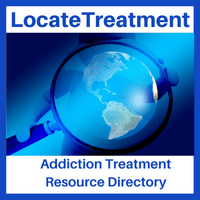Advocacy Alert: 2020 Advocacy Year in Review Update
December 31, 2020
One of the many benefits BHAP members get is access to a monthly update from our advocate in Washington, D.C., Andrew Kessler of Slingshot Solutions.
It is his responsibility to keep our members informed when it comes to policy developments, and to represent our interests before the federal government. We do this by working with Congress, the White House and executive agencies, and other interest groups and coalitions.
As 2020 draws to a close, we wanted to share a year-end advocacy update from Andrew, available to anyone, to give you an idea of what you are missing. Consider joining BHAP today!
2020 has come to an end. One of the most bizarre years in recent history, the COVID-19 pandemic touched every possible sector of our lives and society. Politics was no exception. Our government's preoccupation with the virus left very little time for progress in other areas, including substance use disorders- despite the reality that overdose deaths have skyrocketed to their highest levels in history. Yet even though all policy will revolve around COVID for the foreseeable future, there are ways to take advantage of the situation. We did it with a moderate degree of success in 2020, and will continue to do so in 2021.
In the COVID stimulus passed at the end of the year, there was a $4 billion increase for the Substance Abuse Mental Health Services Administration (SAMHSA). The substance abuse prevention and treatment (SAPT) block grant, which funds services at the state and local level, will receive $1.6 billion, which is almost as much as the program receives in an entire year. These funds will be distributed to the states based on population size, and a minimum of 20% of the amount each state receives must be spent on prevention services. In addition, $50 million will be available for suicide prevention programs, and $10 million will be available for the National Child Traumatic Stress Network.
There were also some regulatory changes in the legislation that can have long term benefits to the SUD treatment and recovery community, as well as for the populations we advocate for. The legislation will seek to strengthen parity for behavioral health services, fulfilling the intent of the Wellstone/Domenici parity Act passed in 2008. Group health plans and health insurance issuers offering coverage in the individual or group markets will be required to conduct comparative analyses of the nonquantitative treatment limitations used for medical and surgical benefits as compared to mental health and substance use disorder benefits. It requires the Secretaries of HHS, Labor, and the Treasury to request comparative analyses of at least 20 plans per year that involve potential violations of mental health parity, complaints regarding noncompliance with mental health parity, and any other instances in which the Secretaries determine appropriate.
Also included in the COVID stimulus package was the Restoring Education and Learning (REAL) Act, bipartisan legislation authored by U.S. Senator Brian Schatz (D-Hawai‘i) that will restore Pell Grant eligibility for incarcerated individuals. In 1994, incarcerated individuals lost access to Pell Grant assistance, causing a significant drop in the number of education programs in prisons. The REAL Act would restore access to these grants, which would reduce recidivism and incarceration costs by increasing access to higher education. As a result, there will be more opportunities for those with a felony drug conviction to seek new opportunities post-incarceration.
President Elect Biden has made it clear that his administration will seek to pass additional stimulus packages. BHAP will be paying attention to issues such as telehealth, reimbursement, and the expansion (and protection) of the SUD workforce, and will advocate for inclusion of these issues in future legislation. We do not expect 2021 to be any less of a challenge than 2020, but we do expect to continue our success by making further advances for the behavioral health industry.
Questions? Concerns?
As always, we want your input. Please contact us with any questions or concerns you have about our advocacy efforts.

A national membership association that provides education and advocacy for those in the behavioral health and addiction treatment industries.
We are the leading and unifying voice of addiction-focused treatment programs.



